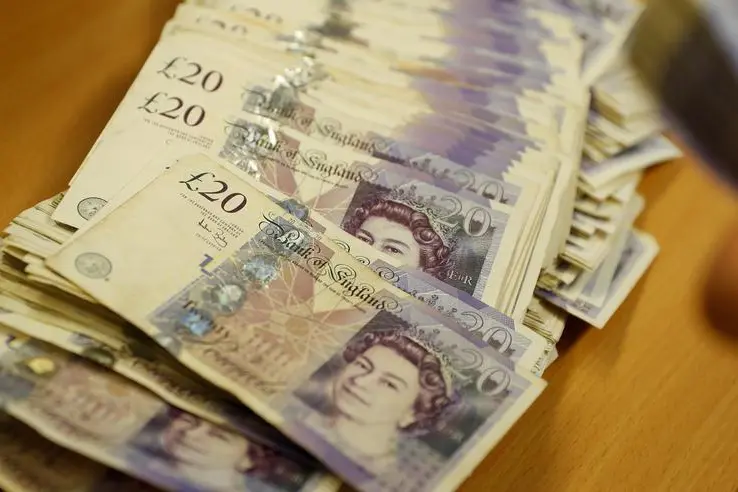PHOTO
The British pound edged higher against the dollar and the euro on Tuesday after mixed labour market data, which should clear the way for the Bank of England to lower interest rates next month but proceed at a measured pace.
British pay grew at its slowest rate in more than two years in the three months to August, according to official data, but the unemployment rate fell to 4% - its lowest reading this year - and employment jumped by the most on record.
However, the statistics agency stepped up its health warning over the Labour Force Survey amid falling response rates, saying it likely overstated employment growth and the fall in unemployment.
"Ongoing problems with the Labour Force Survey means the EY ITEM Club doubts that the labour market is really as tight as the latest data implies," said Matt Swannell, chief economic advisor to the EY ITEM Club.
"The pay data will give the Bank of England more confidence that inflation persistence is easing, increasing the likelihood of a 25 basis point cut in Bank Rate at its November meeting," Swannell added.
Stickier inflation in the UK has supported the pound this year as analysts bet that the BoE would be slower and later to cut interest rates, but shifting bets have pushed it lower in recent weeks.
The pound was last up 0.2% at $1.3084, hovering above last week's one-month low of $1.3011.
It has fallen by over 2% this month after BoE Governor Andrew Bailey said the central bank could move more aggressively to cut interest rates if inflation pressures continue to weaken.
A readout on British inflation is scheduled on Wednesday, where the headline consumer price index is expected to fall to 1.9%, below the BoE's 2% target for the first time since mid-2021.
ING FX strategist Francesco Pesole believes the pound could weaken more against the euro if tomorrow's inflation figures show a moderation in price pressures.
"The BoE has more room than other central banks to catch up on the easing cycle," Pesole said.
"But obviously much will depend on what happens with tomorrow's CPI, which has been volatile recently."
Futures markets are pricing in around 20 basis points of easing at the BoE's November meeting, implying around an 80% chance that the central bank will lower interest rates by a quarter point next month.
Against the euro, the pound was up about 0.1% at 83.43 pence.
(Reporting by Samuel Indyk, editing by Ed Osmond)





















